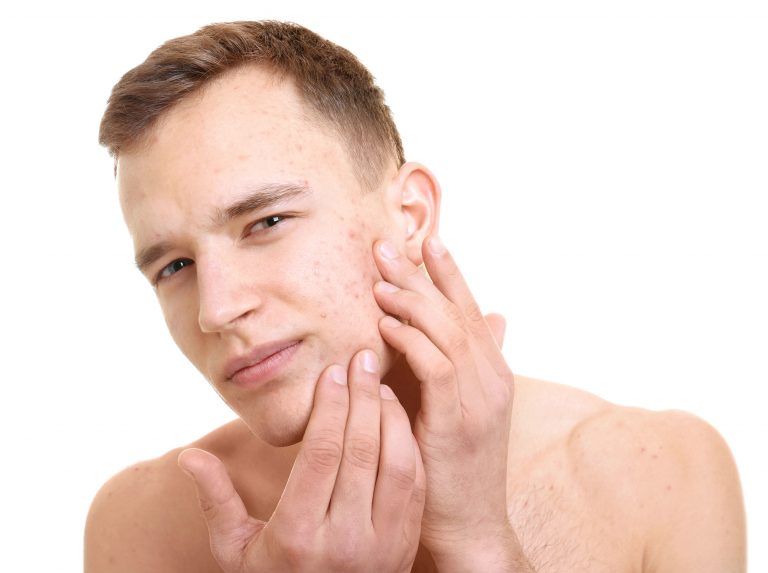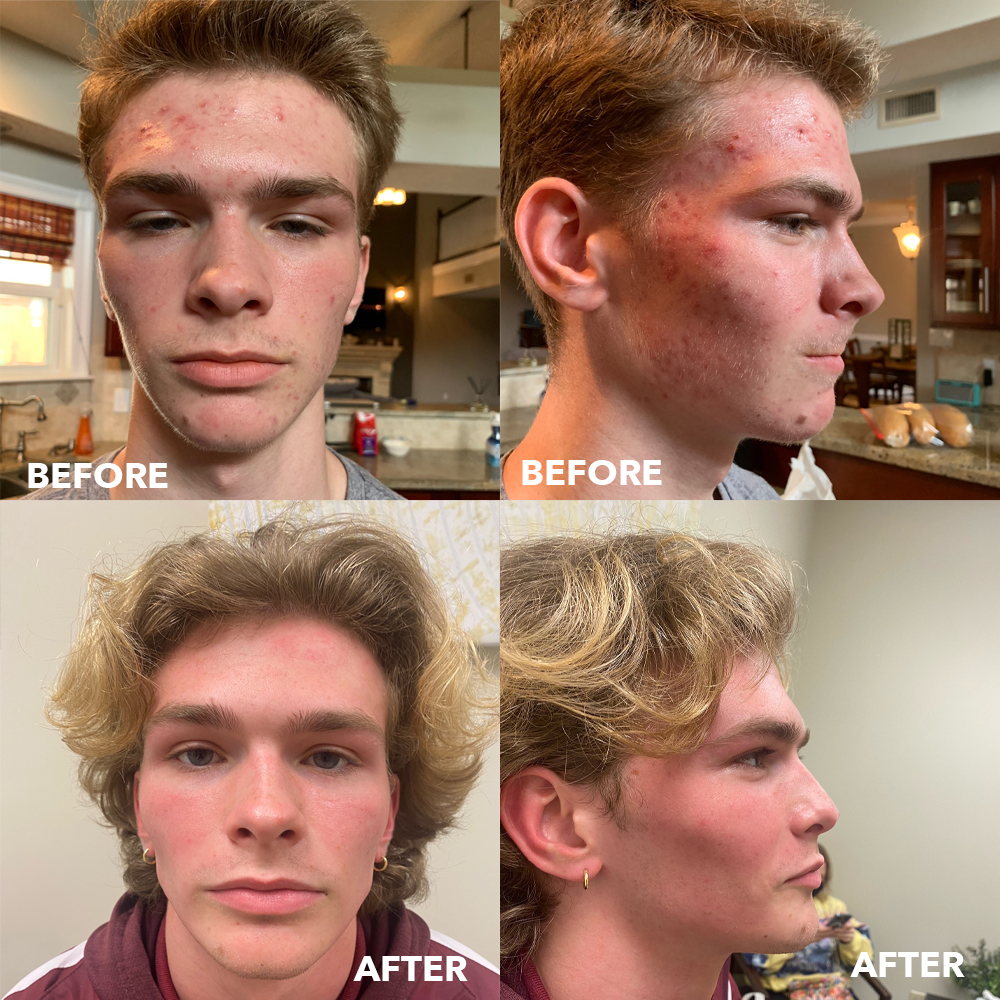
Acne is a disease that affects the oil-producing sebaceous glands in the skin. Sebaceous glands produce oil called sebum that begin to produce larger quantities of oil during puberty due to changing hormones. Acne occurs when the path of the sebum is blocked by dead skin cells. When sebum builds up around hair follicles, it becomes infected leading to the basic acne pimple. In some cases, the follicle can become so full that it bursts resulting in a large and painful lump under the skin known as an acne nodule. Acne nodules often leave scars when they heal which is why it is best to never squeeze or pop pimples on your own.
Contrary to popular belief, greasy foods and poor hygiene do not cause acne. Scubbing with harsh cleansers may actually worsen acne. If you suffer from moderate-severe acne, see a board-certified dermatologist for treatment to prevent inflaming the skin.
Common acne treatments include the following:
– Topical medications
– topical antibiotics
– chemical-peels
– Oral antibiotics
– Hormonal medications
– Contraceptives
– Pro-estrogen products
– Isotretinoin/Accutane for moderate-severe acne patients.
Isotretinoin gets a bad reputation from non-medical bloggers but has been on the market for over 40 years and is completely safe. In fact, it has the highest rate for providing a lifelong acne cure to people who suffer with severe acne. The picture below is a before and after photo of an actual patient whose acne was treated with Accutane (Isotretinoin).

